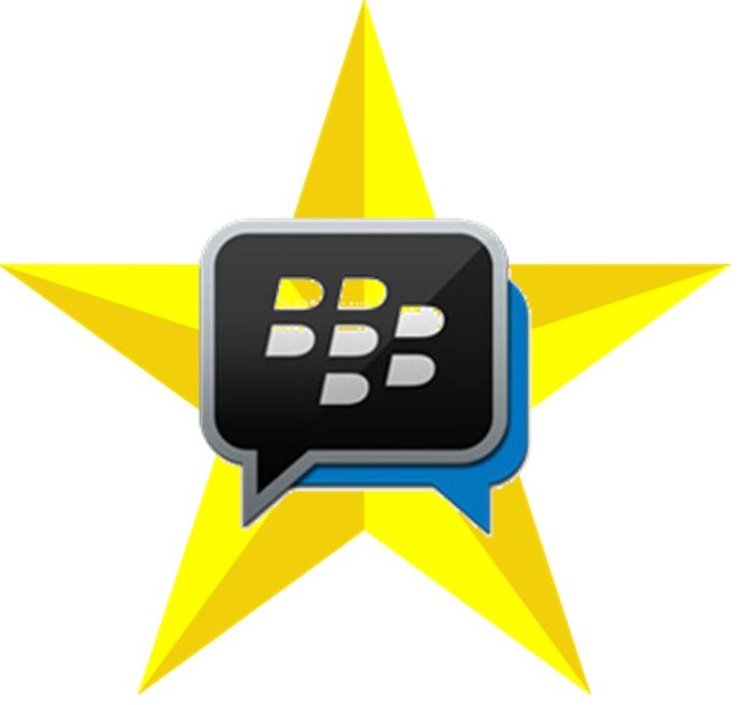The BlackBerry’s messenger service has proven itself to be tremendously popular.
BlackBerry is finally enjoying some time in the spotlight for a positive reason, which is connected to the popularity of the release of its BBM apps for Android and iOS device users.
The messenger service was recently released for those two operating systems and is being downloaded by the millions.
The BlackBerry devices may not have been selling at the rate that they had hoped, but its messenger apps are a huge hit among Apple and Android smartphone owners. According to the company’s own data, there had already been more than 10 million downloads of the BlackBerry Messenger service within the first 24 hours of its initial release to users of devices that were not from that manufacturer.
BlackBerry said that its apps are now processing approximately 500,000 new users every hour.
 Jeff Gadway, a spokesperson for BlackBerry, said that “We have absolutely incredible demand we’re trying to manage.” He added that “We’re off to a really good start.” This hype and popularity for the apps is very welcome news for the Canadian company, which has been fighting a losing battle with its competitors in the smartphone marketplace and has put itself up for sale.
Jeff Gadway, a spokesperson for BlackBerry, said that “We have absolutely incredible demand we’re trying to manage.” He added that “We’re off to a really good start.” This hype and popularity for the apps is very welcome news for the Canadian company, which has been fighting a losing battle with its competitors in the smartphone marketplace and has put itself up for sale.
These new millions of users of the apps are in addition to the 60 million BlackBerry users who are already using the BBM service. That said, it is not yet clear how the manufacturer will actually generate any money from this popular new service. The application, itself, is free, and there is competition within the instant messaging sphere, to the point that BBM is not currently the leader.
Among the BBM apps, the one designed specifically for BlackBerry users was the very first instant messenger created specifically for smartphones, and it rapidly became exceptionally popular in the last half of the first decade of the 2000s. It provides users the ability to keep their identities secure through a unique and protected anonymous code, and to know when their messages had been delivered to the recipients, and when they had been opened. Now, despite a large number of alternatives, other device users are beginning to enjoy this same benefit.
The favorite apps are those that simplify retail purchasing, such as those that guide the in-store process.
The results of a new study by Parks Associates have now been released and have shown that over one in four shoppers of consumer electronic products in the United States who have broadband capable devices use mobile commerce apps on their smartphones in order to help them to make a purchasing decision.
They use a number of different features from these applications to help them to decide what is best.
Among the favorite mobile commerce app features, said the report, were functions for product research, QR code and barcode scanning, as well as apps that provide interactions with brands and the retailers themselves. The report on the research was published by Parks Associates under the title “Mobile Commerce: Keys to Mass Adoption”.
Forty three percent of American smartphone owners used mobile commerce to help buy a product in September.
 Consumers – particularly those that shopped at Best Buy, Walmart, and Target – were also noted to be beginning to use their smartphones to make purchasing decisions via mobile commerce channels while they are actually in the stores. These three brands all encourage their shoppers to use their own apps while they are within their stores. According to Parks Associates, it is Target shoppers that are most likely to use these applications while they are looking to purchase a consumer electronics product.
Consumers – particularly those that shopped at Best Buy, Walmart, and Target – were also noted to be beginning to use their smartphones to make purchasing decisions via mobile commerce channels while they are actually in the stores. These three brands all encourage their shoppers to use their own apps while they are within their stores. According to Parks Associates, it is Target shoppers that are most likely to use these applications while they are looking to purchase a consumer electronics product.
According to a Parks Associates senior analyst, Jennifer Kent, “Consumers are using apps and smartphones to enhance their brick-and-mortar shopping experience, with Target shoppers emerging as the most enthusiastic app users.” She also stated that “Our research shows 54% of Target shoppers used at least one mobile commerce app while shopping in a store for CE, while only 38% of Walmart shoppers did the same.”
The analysts behind the mobile commerce report suggested that all retailers begin to embrace the smartphone friendly experience – both with their own apps and third party products – as a method of providing consumers an enhanced overall shopping experience, as well as a front line defense against losing sales to showrooming.
 Jeff Gadway, a spokesperson for BlackBerry, said that “We have absolutely incredible demand we’re trying to manage.” He added that “We’re off to a really good start.” This hype and popularity for the apps is very welcome news for the Canadian company, which has been fighting a losing battle with its competitors in the smartphone marketplace and has put itself up for sale.
Jeff Gadway, a spokesperson for BlackBerry, said that “We have absolutely incredible demand we’re trying to manage.” He added that “We’re off to a really good start.” This hype and popularity for the apps is very welcome news for the Canadian company, which has been fighting a losing battle with its competitors in the smartphone marketplace and has put itself up for sale.
 Consumers – particularly those that shopped at Best Buy, Walmart, and Target – were also noted to be beginning to use their smartphones to make purchasing decisions via mobile commerce channels while they are actually in the stores. These three brands all encourage their shoppers to use their own apps while they are within their stores. According to Parks Associates, it is Target shoppers that are most likely to use these applications while they are looking to purchase a consumer electronics product.
Consumers – particularly those that shopped at Best Buy, Walmart, and Target – were also noted to be beginning to use their smartphones to make purchasing decisions via mobile commerce channels while they are actually in the stores. These three brands all encourage their shoppers to use their own apps while they are within their stores. According to Parks Associates, it is Target shoppers that are most likely to use these applications while they are looking to purchase a consumer electronics product.